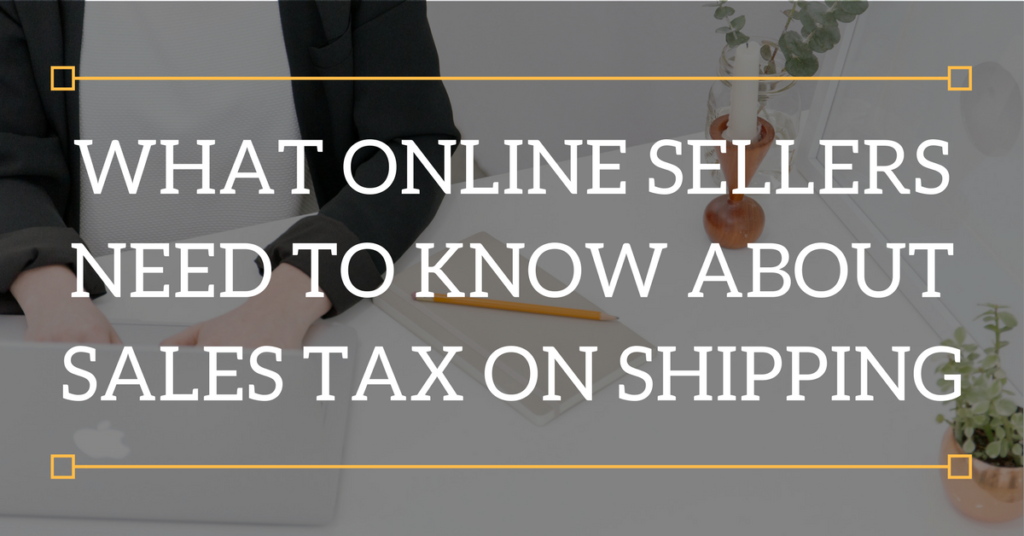As a product seller, you’re probably well aware of the ins and outs of collecting sales tax. But one aspect of sales tax that gets a little complicated is whether to charge sales tax on shipping charges.
Sales tax is governed at the state level, and each state gets to decide whether they consider shipping charges part of a taxable transaction. Some states say all shipping charges are taxable, and some have other ideas.
This post will take a deep dive into why some shipping charges are taxable in the U.S., and how you can make sure you are charging your customers the right amount of sales tax.
The Basics of Sales Tax on Shipping Charges in the U.S.
To wrap your head around sales tax on shipping charges in the U.S., you must first understand a little about the U.S. sales tax system.
Sales tax is governed at the state level, meaning that the 45 states (and Washington D.C.) that have a sales tax get to make their own sales tax laws and regulations. And in most states, sales of tangible personal property are subject to sales tax.
Things get tricky when considering whether shipping charges are also subject to sales tax. Some states consider an eCommerce shipping charge a necessary part of the sale, and therefore taxable. Other states consider shipping non-taxable if it is not included in the price of the item on the invoice. Other states take a little from Column A and a little from Column B.
Sales Tax on Shipping Charges Example
Let’s look at the difference when charging sales tax on a shipping charge vs. no sales tax on the shipping charge.
To keep this example simple, Joanne ships a $10 coffee mug to a buyer in a city where the sales tax rate is 5%. She charges $5 for shipping.
If Joanne is required to charge sales tax on shipping:
She’d add the product price and shipping, for a total of $15. Then charge sales 5% sales on that $15. This equals .75 sales tax. So, the total price the customer pays would be $15.75.
If Joanne is NOT required to charge sales tax on shipping:
Joanne charges 5% sales tax only on the item price of $10. This equals .50. This means the total price of the coffee cup is $10.50. Then she adds the $5 shipping charge separately, meaning the total price the customer pays is $15.50.
As you can see, whether or not you charge sales tax on shipping charges makes a difference. If you don’t charge sale tax on shipping when you should, you may end up paying the sales tax you should have collected out of pocket. But if charge sales tax on shipping when you shouldn’t, you may end up with an angry customer who feels overcharged.
You can see a list of states where shipping is taxable here. But if you want to dig into the nitty gritty of shipping taxability, read on.
5 General Rules of Sales Tax on Shipping
First off, be very careful about following any “general rule” of sales tax. While the following are true in most cases, each state’s sales tax laws can vary considerably. The state you are dealing with just might be the exception to the rule!
1. State laws haven’t caught up to eCommerce reality – State laws move slowly. Even though we know eCommerce has been around for over 20 years, some state laws still haven’t caught up to the technological reality. So not all states’ sales tax laws will cover scenarios like a business that solely ships to customers. In these cases, it’s necessary to interpret existing laws and sales tax letter rulings to fit an eCommerce scenario.
2. If an item isn’t taxable, then the shipping charge isn’t taxable – In most cases, if you sell a non-taxable item to a customer, then you should not charge sales tax on the shipping charge to that customer.
3. A combined shipment of taxable and non-taxable items can get tricky – Did you ship a taxable coffee mug and a non-taxable pair of pants to a customer? In most cases when state’s cover this scenario, they tell sellers to divide the total shipping charge up by either weight or quantity, and then only charge sales tax on the shipping charge used to ship the taxable item. Confusing, right? As a quick example: If you charge $10 in shipping and ship one taxable item and one non-taxable item, you’d only charge sales tax on the $5.00 you charged to ship the taxable item.
4. Rules vary when shipping in your own vehicle – Most of the rules of thumb I’ve talked about up until now deal with shipping via common carrier (UPS, FedEx, USPS, etc.) Some states have separate rules about delivery charges when shipping in your own vehicle. If you plan on making deliveries yourself, be sure to check with your state’s taxing authority for more details on sales tax and shipping.
5. Free shipping isn’t taxable – We get this question from time to time, but there’s no hidden trick here. If you don’t charge your customers for shipping, then you have nothing to tax and no need to worry about sales tax on shipping. However, don’t try to get too clever! We’ve talked to sellers who claim that they’ve bundled $3 into the price of an item to cover shipping charges, so they shouldn’t have to charge their customers sales tax on that $3. States don’t see things this way, and will frown on you under collecting sales tax if you try this method.
I hope this post helps you understand the basics of sales tax on shipping charges in the U.S. If you have questions about shipping taxability, we recommend contacting your state’s taxing authority or a reputable sales tax expert. Have questions or something to say? Start the conversation in the comments!
TaxJar is a service that makes sales tax reporting and filing simple for more than 8,000 online sellers. Try a 30-day-free trial of TaxJar today and eliminate sales tax compliance headaches from your life!


